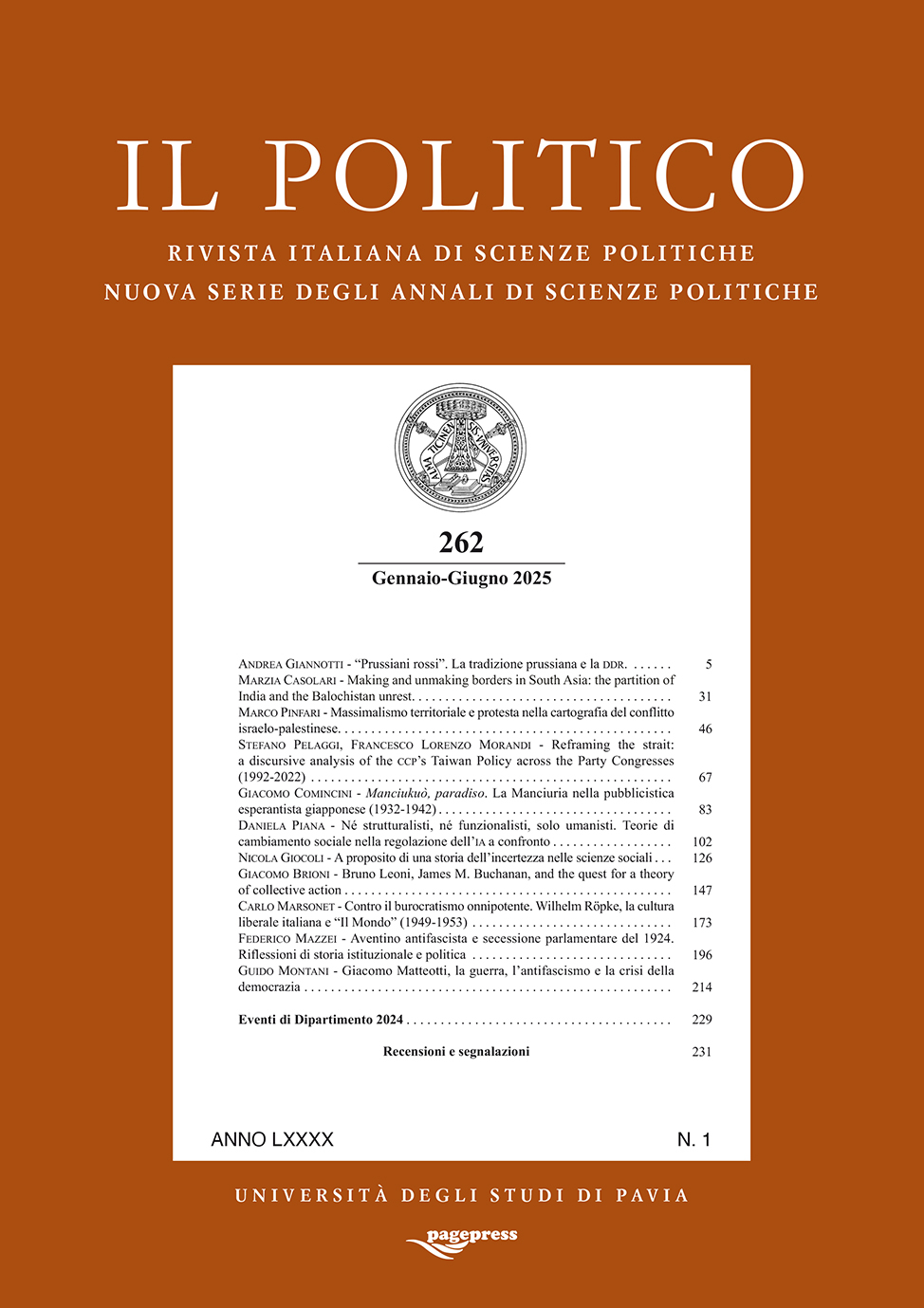ARTICLES
20 June 2025
Vol. 262 No. 1 (2025)
MANCIUKUÒ, PARADISO. LA MANCIURIA NELLA PUBBLICISTICA ESPERANTISTA GIAPPONESE (1932-1942)
Publisher's note
All claims expressed in this article are solely those of the authors and do not necessarily represent those of their affiliated organizations, or those of the publisher, the editors and the reviewers. Any product that may be evaluated in this article or claim that may be made by its manufacturer is not guaranteed or endorsed by the publisher.
All claims expressed in this article are solely those of the authors and do not necessarily represent those of their affiliated organizations, or those of the publisher, the editors and the reviewers. Any product that may be evaluated in this article or claim that may be made by its manufacturer is not guaranteed or endorsed by the publisher.
83
Views
48
Downloads








